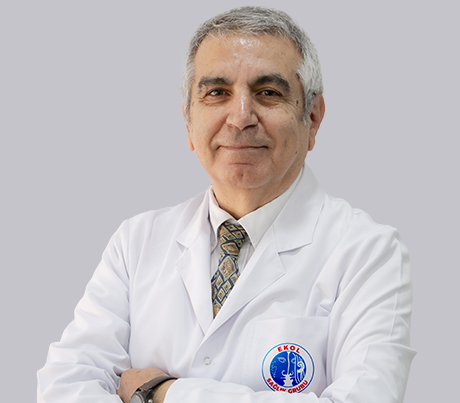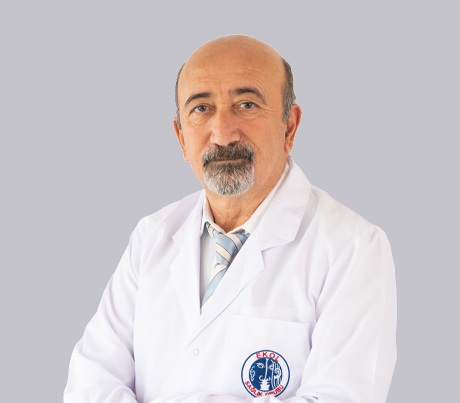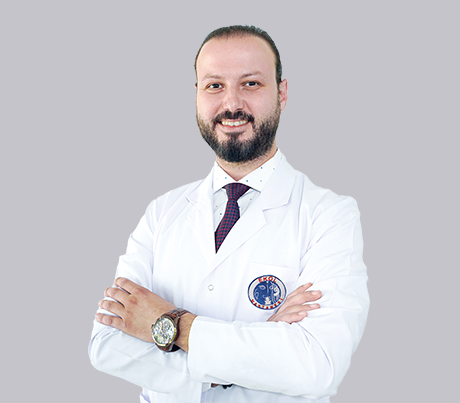In its fully equipped Brain and Neurosurgery Unit, Ekol Hospital follows the innovations in medical technology with a team and multidisciplinary approach. In parallel with these, Ekol Hospital Brain and Neurosurgery Unit has obtained successful results in diagnosis and treatments of the following areas with its experienced expert medical staff.
Almost everybody has backaches at least once in their lifetime. If it goes away within a few weeks, it is acute. Otherwise, it may be chronic and after some time, you may need spinal surgery.
Doctors first try to treat back pain with non-surgical methods, but if it is unavoidable, they may decide a surgery. There are six common spinal surgeries:
Most backpains get better after surgery. Surgeries are always supported by conservative treatment like physical therapy, medication, and heat.
Hernia of the loins or also known as “spinal disc herniation” is a very common disturbance, and can threaten most daily life activities. A herniated disc occurs when the nucleus pushes out the annulus. Arm pain, leg pain, numbness, or tingling are among the symptoms of a hernia of the loins.
Cervical Disc Hernia may occur without any symptoms and still can cause pain. It is very usual to feel its effect in one arm or the other as numbness. Loss of bowel control is also a possible sign of disturbance of cervical disc hernia.
Spine fracture is damage to the back that is usually caused by traffic accidents, falls, or gunshots. The reason for spine fracture also can be weakened bones in old age. It damages the vertebrae, 33 bones in your spinal column. It is an emergency and needs as fast treatment as possible. Back pain, height loss, swelling, tenderness, numbness, and tingling are among the symptoms of spine fracture. If you have a doubt, a spine x-ray is the best way to understand your condition.
Scoliosis is a disturbance usually seen in children aged between 10 and 15. However, it can occur at any age, from babyhood to elderliness. Scoliosis can be treated, but if it is mild, treatment is not always needed. Some symptoms of scoliosis are:
Most people do not need surgery for scoliosis, only a small number of people need surgery, and exercises given by your doctor might be helpful as a part of treatment.
Ankylosing spondylitis is a condition that lasts for a long time. In Ankylosing spondylitis spine is inflamed.
Some symptoms of Ankylosing spondylitis are:
In some people, ankylosing spondylitis gets better in others it gets worse in time. If your symptoms persist, you may see a doctor. Your doctor may offer blood tests and imaging tests for improved treatment. There is no cure for ankylosing spondylitis at the moment but a successful treatment may stop it from developing.
A tumor is an abnormal swelling of the flesh.
Spine tumors by location:
Spine tumors by origin:
A brain tumor is the uncontrolled growth of cells in the brain. A brain tumor can start in the brain or near the brain like in the nerves, in the pineal gland, or the membranes. If a brain tumor starts in the brain, it is called a primary brain tumor. If a tumor starts in the other parts of the body and spreads to the brain, it is called a secondary brain tumor.
Symptoms of a brain tumor are many and some of them are:
Nerve compression is a condition that occurs when a nerve is squeezed or compacted. It is usually happens in a single location. If treatment is neglected, the damage on that part can be permanent. See a doctor as soon as possible if you doubt symptoms.
Some of the nerve compression symptoms are:
Nerve compression causes many difficulties in your daily life and affects working parenting, and sports.
Some common types of nerve compression are:
Cerebral hemorrhage, also known as “intracerebral hemorrhage” and “hemorrhagic stroke” is a condition when a blood vessel in the skull starts bleeding into and around the brain. High blood pressure is the main reason for cerebral hemorrhage to happen. Arteries in the brain are weakened by high blood pressure and that causes split and rupture.
Some risks of high blood pressure can be lined below:
In addition, you should see a doctor as soon as possible, if you think you have a irregular heartbeat.
Hydrocephalus is a condition that builds up fluid in the cavities in the brain. The pressure of cerebrospinal fluid associated with hydrocephalus can damage the brain and cause brain function problems. The imbalance between the amount of cerebrospinal fluid produced and absorbed into the bloodstream is the reason for hydrocephalus.
Hydrocephalus can be seen at any age but mostly among adults over 60.
Some of the symptoms and physical signs of hydrocephalus are:
Congenital anomalies or in other saying birth defects are the functional and structural anomalies seen in the intrauterine period. It is known that one in fifty babies is born with a congenital anomaly like Down syndrome, cleft palate, and spinal bifida.
With the help of advanced technology, some congenital anomalies during pregnancy can be detected. Others can be understood after birth and as the baby grows older.
If an injury is in the brain and skull and scalp it may be called a head injury. Head injuries may be open or closed injuries. If the skull is not broken because of the injury, it is called a “closed injury”. If the scalp and the skull are broken because of the injury and the injury enters the brain, it is called an “open injury.”
Some symptoms of head traumas or severe head injuries are:
 In 1977, he earned his medical degree from Ege University Faculty of Medicine with a thesis on "Brain Tumors in the Pediatric Age Group." In 1975, he completed an endocrinology summer internship alongside Prof. Plasevski in Macedonia. In 1979, he attended a micro-neurosurgery course at the Jules Bordet Institute in Brussels under Prof. Brihaye.
Between 1980 and 1981, he received a British Council scholarship for a research fellowship, working with Prof. Symon and Prof. Thomas at the National Hospitals for Neurology & Neurosurgery and the Institute of Neurology, Gough Cooper Dept. of Neurosurgery in London. During the same period, he served as an honorary clinical assistant in neurosurgery clinics at Queen Square, Maida Vale, and various Italian hospitals. He conducted experiments with numerous chemotherapeutic agents, interferon, corticosteroids, and nucleic acids in three-dimensional spheroid brain tumor cell culture studies.
In 1983, he became a specialist in neurosurgery with a thesis titled "In Vitro Chemosensitivity Evaluation in Human Brain Multicellular Tumor Spheroids" at the Department of Neurosurgery at Ege University Faculty of Medicine.
He returned to the Department of Neurosurgery at Ege University in 1988, achieving the title of Associate Professor, and became a Professor in 1997.
Recognizing the importance of a multidisciplinary approach, he founded the Ege Adult Neuro-Oncology Council (ENOK) in 1996, which operates regularly within the faculty. He also chaired the establishment of the Neuro-Oncology Group within the Turkish Neurosurgery Society on December 22, 2001, and served as the president of the Turkish Neuro-Oncology Group (TURNOG) from 2001 to 2005.
In 2014, he was elected as a board member of the Turkish Neurosurgery Academy (TNA), which was established under the Turkish Neurosurgery Society, and served on the board from 2016 to 2018. Prof. Dr. Nezih Oktar is proficient in Italian.
In 1977, he earned his medical degree from Ege University Faculty of Medicine with a thesis on "Brain Tumors in the Pediatric Age Group." In 1975, he completed an endocrinology summer internship alongside Prof. Plasevski in Macedonia. In 1979, he attended a micro-neurosurgery course at the Jules Bordet Institute in Brussels under Prof. Brihaye.
Between 1980 and 1981, he received a British Council scholarship for a research fellowship, working with Prof. Symon and Prof. Thomas at the National Hospitals for Neurology & Neurosurgery and the Institute of Neurology, Gough Cooper Dept. of Neurosurgery in London. During the same period, he served as an honorary clinical assistant in neurosurgery clinics at Queen Square, Maida Vale, and various Italian hospitals. He conducted experiments with numerous chemotherapeutic agents, interferon, corticosteroids, and nucleic acids in three-dimensional spheroid brain tumor cell culture studies.
In 1983, he became a specialist in neurosurgery with a thesis titled "In Vitro Chemosensitivity Evaluation in Human Brain Multicellular Tumor Spheroids" at the Department of Neurosurgery at Ege University Faculty of Medicine.
He returned to the Department of Neurosurgery at Ege University in 1988, achieving the title of Associate Professor, and became a Professor in 1997.
Recognizing the importance of a multidisciplinary approach, he founded the Ege Adult Neuro-Oncology Council (ENOK) in 1996, which operates regularly within the faculty. He also chaired the establishment of the Neuro-Oncology Group within the Turkish Neurosurgery Society on December 22, 2001, and served as the president of the Turkish Neuro-Oncology Group (TURNOG) from 2001 to 2005.
In 2014, he was elected as a board member of the Turkish Neurosurgery Academy (TNA), which was established under the Turkish Neurosurgery Society, and served on the board from 2016 to 2018. Prof. Dr. Nezih Oktar is proficient in Italian. Born in Gediz in 1963, he graduated from Istanbul University Faculty of Medicine in 1988. In 1997, he completed his specialty education at Dokuz Eylül University Faculty of Medicine. He worked as a specialist at the same faculty for a while. For 3 years, he worked as a lecturer in Neurosurgery at Izmir University Faculty of Medicine.
Since 2004, he has been working at Ekol Hospitals in Izmir.
He has 18 international and more than 50 professional published studies.
Opr. Dr. Haluk ÖZER is proficient in English.
Areas of Interest Brain Tumors Brain Vascular Lesions (Aneurysm, AVM) Surgery Surgery of Cranial and Spinal Developmental Anomalies Endoscopic Norosurgery Disc Pathologies Degenerative Spine Diseases Pain Surgery Peripheral Nerve Surgery
Born in Gediz in 1963, he graduated from Istanbul University Faculty of Medicine in 1988. In 1997, he completed his specialty education at Dokuz Eylül University Faculty of Medicine. He worked as a specialist at the same faculty for a while. For 3 years, he worked as a lecturer in Neurosurgery at Izmir University Faculty of Medicine.
Since 2004, he has been working at Ekol Hospitals in Izmir.
He has 18 international and more than 50 professional published studies.
Opr. Dr. Haluk ÖZER is proficient in English.
Areas of Interest Brain Tumors Brain Vascular Lesions (Aneurysm, AVM) Surgery Surgery of Cranial and Spinal Developmental Anomalies Endoscopic Norosurgery Disc Pathologies Degenerative Spine Diseases Pain Surgery Peripheral Nerve Surgery He graduated from Ege University Faculty of Medicine in 2007. Between 2011 and 2016, he completed his specialization in the Department of Neurosurgery at Izmir Training and Research Hospital. He is a member of the Turkish Neurosurgery Association. Oral and written presentations made at national and international meetings; There are articles published in journals, compilations and translations written in various journals and books.
Op. Dr. Mahmut Necdet Palaz is fluent in English.
Areas of interest:
• Spine Surgery
• Specific Injections for All Kinds of Headaches
• Spine Fracture
• Scoliosis (Spine Curvatures)
• Ankylosing Spondylitis (Humpback)
• Spine Tumors
• Nerve Compression
• Endoscopic (Closed Method) Brain Tumor Surgery
• Brain Bleeding
• Pain Intervention Procedures (Radiofrequency, Laser)
• Hydrocephalus (Water collection in the brain)
• Congenital Anomalies
• Minimally Invasive Interventions and Head Traumas.
He graduated from Ege University Faculty of Medicine in 2007. Between 2011 and 2016, he completed his specialization in the Department of Neurosurgery at Izmir Training and Research Hospital. He is a member of the Turkish Neurosurgery Association. Oral and written presentations made at national and international meetings; There are articles published in journals, compilations and translations written in various journals and books.
Op. Dr. Mahmut Necdet Palaz is fluent in English.
Areas of interest:
• Spine Surgery
• Specific Injections for All Kinds of Headaches
• Spine Fracture
• Scoliosis (Spine Curvatures)
• Ankylosing Spondylitis (Humpback)
• Spine Tumors
• Nerve Compression
• Endoscopic (Closed Method) Brain Tumor Surgery
• Brain Bleeding
• Pain Intervention Procedures (Radiofrequency, Laser)
• Hydrocephalus (Water collection in the brain)
• Congenital Anomalies
• Minimally Invasive Interventions and Head Traumas.